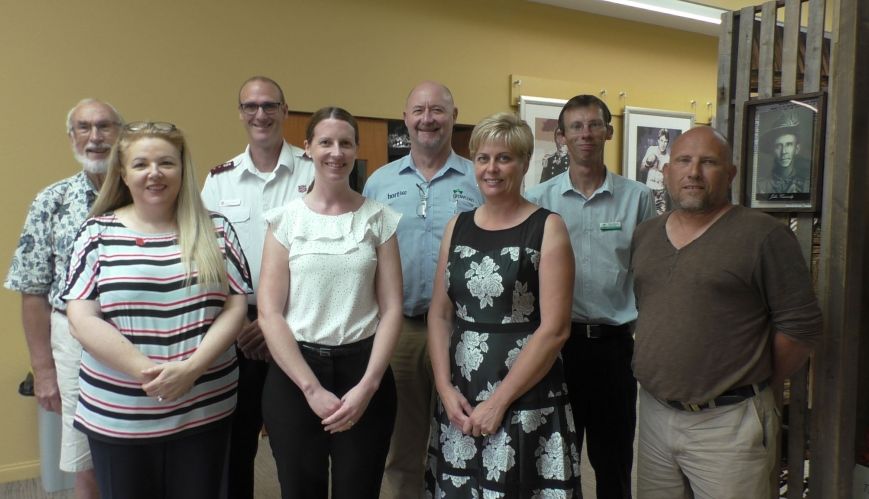Freedom Partnership receives Commonwealth grant to fund fight against modern slavery

Freedom Partnership receives Commonwealth grant to fund fight against modern slavery
21 December 2017
The Freedom Partnership's Alison Rahill (front row, left), and Captain Craig Harlum (back row, second left), Lockyer Valley Corps Officer, with the training team at the Freedom Links Workshop in the Lockyer Valley last month.
The Salvation Army’s Freedom Partnership has been awarded a Community Crimes Prevention Grant, funded by the Commonwealth Attorney-General’s Department, under its anti-trafficking framework.
The initial result of the grant is a workshop and training program, Freedom Links, that empowers people to identify and respond to human trafficking, extreme exploitation and forced labour in their community.
Freedom Links is particularly relevant for churches and community organisations that may have contact with temporary migrants or new arrivals. Agriculture, construction, hospitality and cleaning are industries that have been identified as having a high risk of modern slavery.
“Our mission is to end slavery by working with the communities where vulnerable people live and work,” said Alison Rahill, National Networks Coordinator for The Salvation Army’s Freedom Partnership to End Modern Slavery.
“Every community in regional Australia has a story around modern slavery and criminal exploitation. In many cases locals knew something was wrong but just didn’t know how to respond.”
Alison will deliver the training at Salvation Army corps, and will be joined by the Australian Federal Police Human Trafficking Team and Salvos Humanitarian Legal migration law senior partner, Michael Anglin.
The first Freedom Links workshops took place last month in the Lockyer Valley, a farming area west of Brisbane. Additional workshops are planned for 2018, in Mildura (Victoria), Griffith (NSW), and the Wide Bay Burnett region (Queensland). All of these areas are heavily agricultural, and initial relationship building and meetings in these places have already been held.
“We are working in communities where there are high numbers of temporary workers and the local farming economy is dependent on those workers,” said Alison.
“It is essential for this project to succeed, to have local civic leaders identify that they have a role to play in creating opportunities for social inclusion and outreach activities aimed at engaging the most vulnerable people in their community. They have to see this issue as their problem and want to do what they can.
“The reason why we invite council inspectors, local police, community organisations, social workers, health services, churches and other frontline services to participate in the training is because everyone in the community has a role to play in identifying potential victims, deterring and preventing exploitation from happening in the first place.
“Forced labour is a crime, but we can’t just leave all responsibility with the police.”
The Freedom Links grant also has the capacity to assist corps who participate in the workshop, to offer community outreach programs they believe will make a difference. Alison believes that corps can play a vital role in building knowledge around modern slavery and forced labour.
“It’s about building capacity to help people realise what they can do when something is wrong,” she said. “It’s knowing the difference between someone having a bad job, and a bad job they can’t leave due to criminal exploitation.”